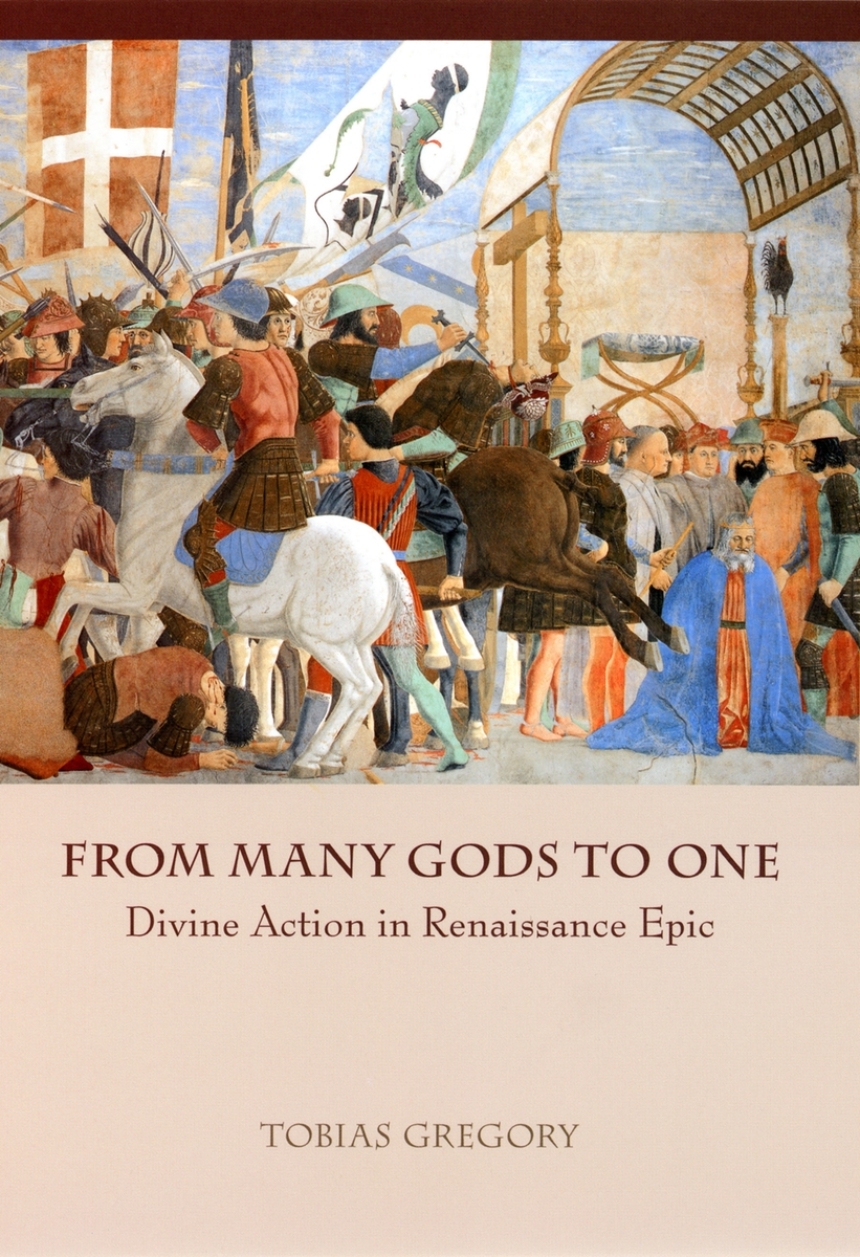From Many Gods to One
Divine Action in Renaissance Epic
Epic poets of the Renaissance looked to emulate the poems of Greco-Roman antiquity, but doing so presented a dilemma: what to do about the gods? Divine intervention plays a major part in the epics of Homer and Virgil—indeed, quarrels within the family of Olympian gods are essential to the narrative structure of those poems—yet poets of the Renaissance recognized that the cantankerous Olympians could not be imitated too closely. The divine action of their classical models had to be transformed to accord with contemporary tastes and Christian belief.
From Many Gods to One offers the first comparative study of poetic approaches to the problem of epic divine action. Through readings of Petrarch, Vida, Ariosto, Tasso, and Milton, Tobias Gregorydescribes the narrative and ideological consequences of the epic’s turn from pagan to Christian. Drawing on scholarship in several disciplines—religious studies, classics, history, and philosophy, as well as literature—From Many Gods to One sheds new light on two subjects of enduring importance in Renaissance studies: the precarious balance between classical literary models and Christian religious norms and the role of religion in drawing lines between allies and others.
Reviews
Table of Contents
Abbreviations and a Note on Translations
Introduction
CHAPTER 1
The Polytheistic Model:
Homer and Virgil
CHAPTER 2
Neo-Latin Epic:
Petrarch and Vida
CHAPTER 3
Providence, Irony, and Magic:
Orlando furioso
CHAPTER 4
With God on Our Side:
Gerusalemme liberata
CHAPTER 5
The Tragedy of Creaturely Error:
Paradise Lost
Afterword
Works Cited
Index
